As a recruiter or hiring manager, you're tasked with finding a project manager who can seamlessly integrate into your organization and drive projects to success. Many companies often misunderstand what makes a project manager truly effective, focusing solely on technical skills while overlooking critical leadership and communication abilities. It's essential to identify candidates who not only possess the right skills but also align with your company's culture and values.
In this article, we guide you through the process of hiring a project manager, from understanding their role and responsibilities to structuring interviews. We also cover the necessary skills and qualifications to look for, and where to find top candidates. For more insights on the skills required for a project manager, you can check out our detailed article on project manager skills.
Table of contents
Why Hire a Project Manager?
Hiring a project manager becomes necessary when your organization faces challenges in coordinating complex tasks or delivering projects on time. For instance, if you're struggling to meet deadlines or manage resources across multiple departments, it might be time to bring in a project management professional.
Consider hiring a project manager when:
- Your teams are overwhelmed with coordinating tasks
- Projects consistently run over budget or miss deadlines
- There's a lack of clear communication between departments
Before committing to a full-time hire, you might want to start with a project management assessment test to evaluate potential candidates. This can help you gauge their skills and determine if they're the right fit for your organization's needs.
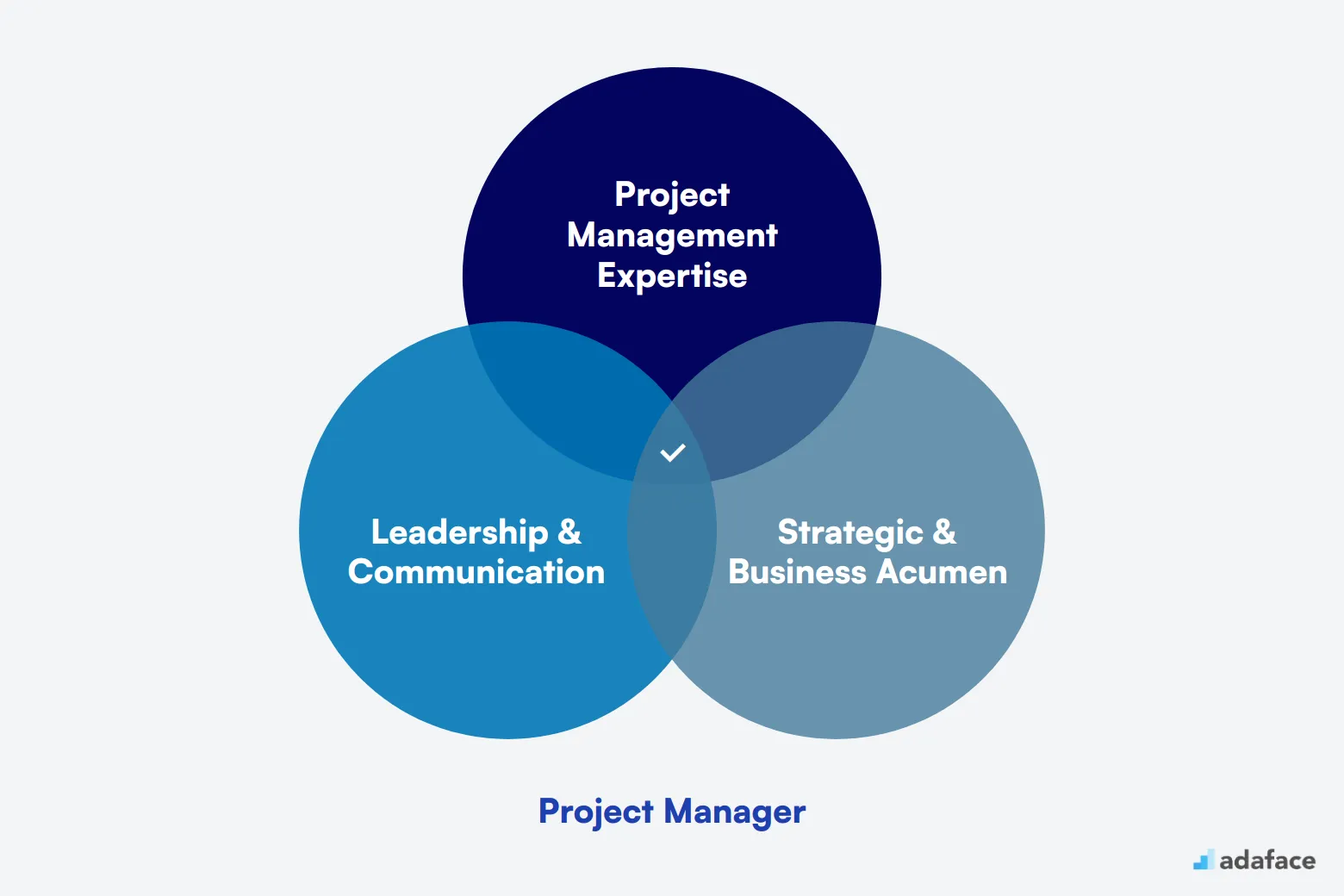
What Does a Project Manager Do?
A Project Manager is responsible for planning, executing, and overseeing projects to ensure they are completed on time and within budget. They act as a bridge between the client and the team, ensuring clear communication of goals and progress.
Day-to-day tasks of a Project Manager include:
- Defining project scope, goals, and deliverables.
- Developing detailed project plans and timelines.
- Coordinating team activities and resources.
- Monitoring project progress and adjusting plans as needed.
- Managing project risks and issues.
For more structured insights, you can explore the skills required for a Project Manager, which detail competencies that help in efficient project execution.
Project Manager Hiring Process
Hiring a Project Manager can take around 6 to 8 weeks. This timeline includes various key stages necessary for finding the right candidate.
- Define the role: Start with a precise job description that outlines responsibilities and skills required. Post it on relevant job boards and company websites.
- Resume Collection: Expect to receive applications within the first week. Review candidates' resumes to create a shortlist based on qualifications and experience.
- Skill Assessment: Conduct skill tests relevant to project management, such as case studies or practical scenarios. Allocate about a week for this stage to evaluate candidates thoroughly.
- Interviews: Arrange interviews with shortlisted candidates. This step helps assess their fit for the team and cultural alignment. It may take 1-2 weeks to schedule and conduct interviews.
- Final Selection: After interviews, select the best candidate and extend an offer. This process can take an additional week as negotiations and paperwork are finalized.
Overall, the hiring process for a Project Manager can span 1 to 2 months, depending on your pace. Now, let's explore each step in detail with useful resources and checklists.
Skills and Qualifications to Look for in a Project Manager
Before you start hiring a Project Manager, it's important to clearly define the skills and qualifications your company needs. Some recruiters might overlook the unique requirements specific to their organization, which can lead to mismatched expectations. Remember, drawing a clear line between required and preferred skills can make a significant difference in your hiring success.
A typical Project Manager should have a mix of hard and soft skills. You'll need someone with a Bachelor's degree in Business or a related field, alongside 5+ years of project management experience. Proficiency in using project management software like Microsoft Project or Jira is also crucial. On the other hand, while a PMP or Prince2 certification could be a great addition, it's not always mandatory.
Consider using role-specific tests available on Adaface to evaluate candidates effectively. These assessments can help you gauge both required and preferred skills, ensuring you find the right fit for your team.
| Required skills and qualifications | Preferred skills and qualifications |
|---|---|
| Bachelor's degree in Business, Management, or related field | PMP or Prince2 certification |
| 5+ years of project management experience | Experience in Agile methodologies |
| Proven track record of successfully delivering complex projects | Knowledge of budgeting and financial planning |
| Strong leadership and team management skills | Excellent stakeholder management skills |
| Proficiency in project management software (e.g., Microsoft Project, Jira) | Industry-specific experience (e.g., IT, construction, healthcare) |
How to Write an Effective Project Manager Job Description
Once you've defined the ideal candidate profile, it's time to craft a compelling job description to attract top project management talent. Here are some key tips to make your Project Manager job description stand out:
- Highlight key responsibilities and impact: Clearly outline the project manager's role in leading teams, managing budgets, and driving project success. Emphasize how their work will contribute to the company's goals and bottom line.
- Balance technical skills with soft skills: While listing required technical skills and certifications, don't forget to emphasize soft skills like leadership, communication, and problem-solving. Project managers need a mix of both to excel.
- Showcase your company culture: Describe your work environment, team dynamics, and growth opportunities. This helps candidates envision themselves in the role and attracts those who align with your values.
Best Platforms to Hire Project Managers
Now that you have a well-crafted job description for a project manager, it's time to list it on relevant job platforms to source suitable candidates. Choosing the right platforms is key to attracting the talent that meets your specific needs, whether you're looking for full-time, freelance, or remote project managers.
LinkedIn Jobs
Ideal for posting full-time project manager positions. Offers wide reach and allows detailed job descriptions with company profiles.

Indeed
Versatile platform for posting all types of project manager roles. Provides options for sponsored listings to increase visibility.

Glassdoor for Employers
Excellent for employer branding alongside job postings. Allows companies to showcase culture and respond to reviews.
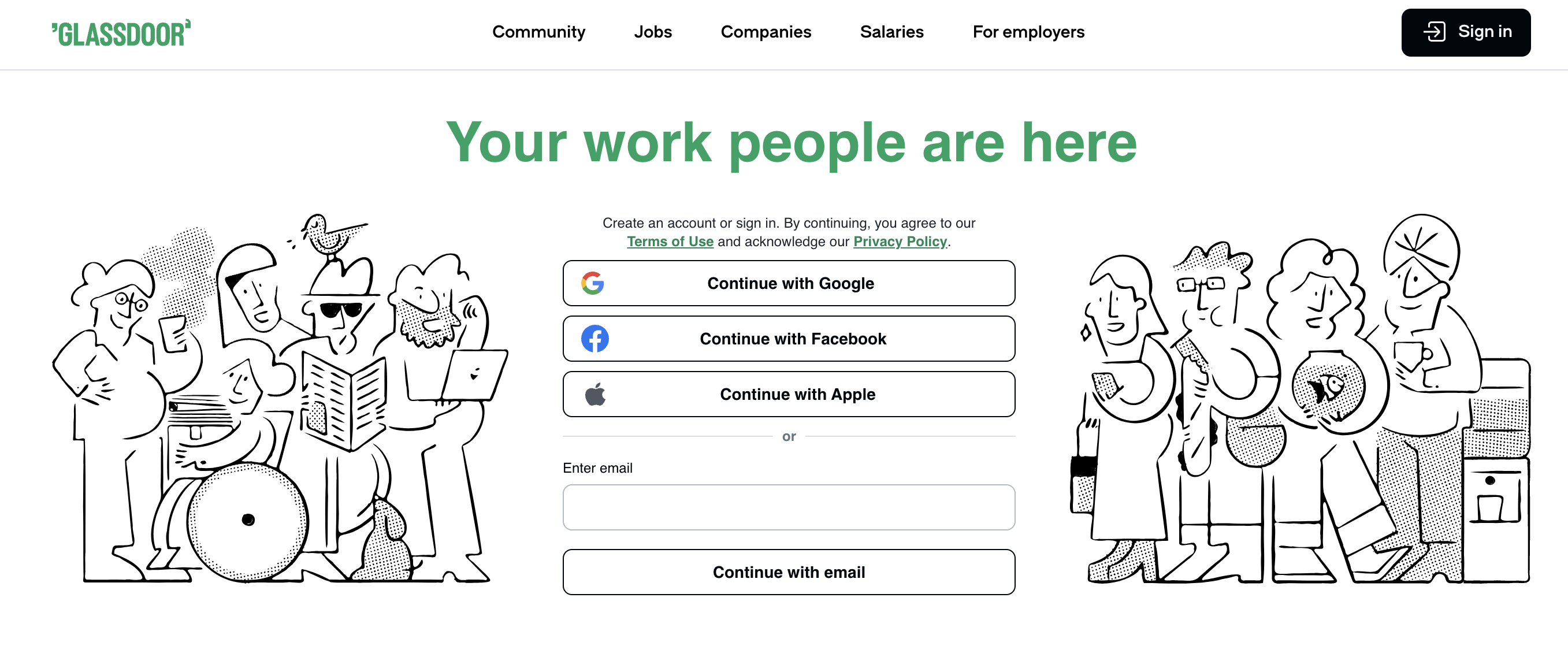
The remaining platforms offer specialized options for different needs. Dice is perfect for tech-focused roles, while ProjectManagement.com targets industry-specific professionals. For freelance options, Upwork and Toptal provide access to talented freelancers, with Toptal offering a more rigorous selection. FlexJobs supports remote job postings, and PMI Career Central is excellent for certified project managers. Lastly, AngelList Recruit focuses on startup environments, attracting candidates ready for dynamic challenges. For more insights on hiring strategies, explore remote hiring.
Keywords to Look for in Project Manager Resumes
Resume screening is a time-saver when hiring Project Managers. It helps you quickly identify candidates with the right skills and experience before moving to interviews.
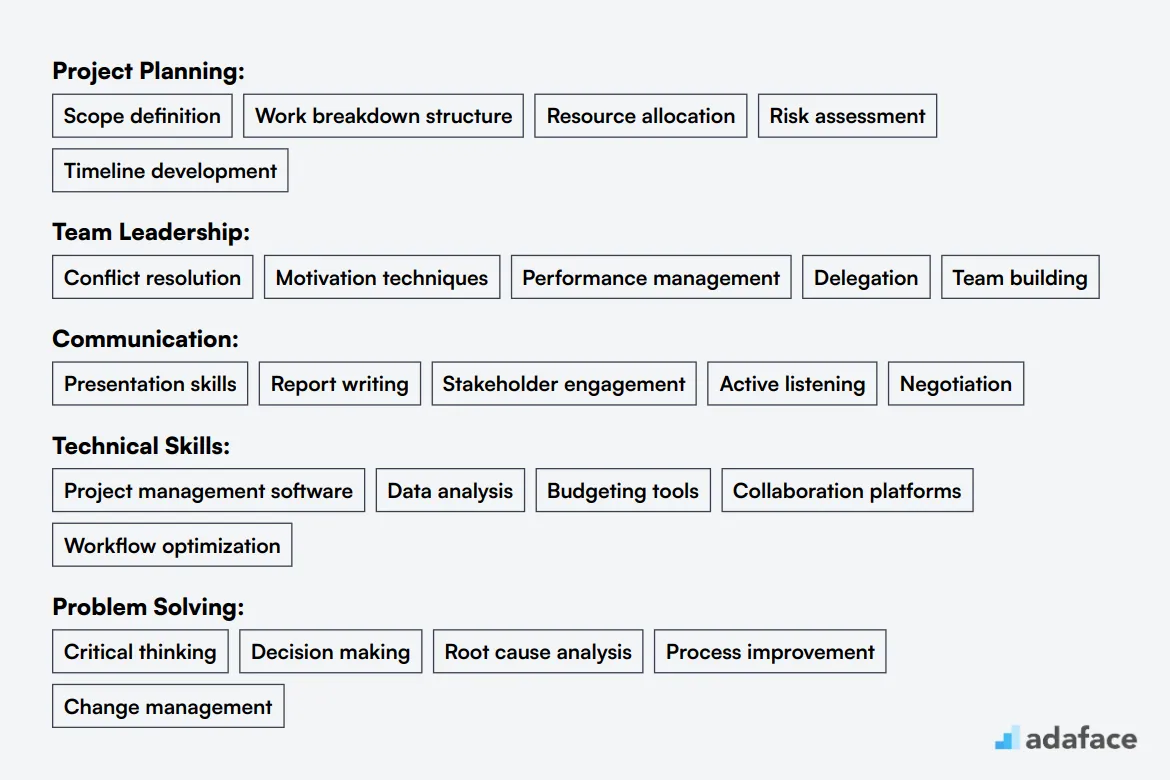
When manually screening resumes, focus on key Project Management skills like project planning, team leadership, and communication. Look for specific software proficiencies, certifications (PMP, Prince2), and industry experience that match your requirements.
AI tools can streamline the screening process. Use language models with custom prompts to analyze resumes based on your criteria. This approach can be faster and more consistent than manual screening.
Here's a sample prompt for AI resume screening:
TASK: Screen resumes for Project Manager role
INPUT: Resumes
OUTPUT:
- Candidate name and email
- Matching keywords
- Score (out of 10)
- Shortlist recommendation (Yes/No/Maybe)
KEYWORDS:
- Project management experience (5+ years)
- PMP or Prince2 certification
- Leadership and team management
- Stakeholder communication
- Budgeting and financial planning
- Agile methodologies
- Industry-specific experience (e.g., IT, construction)
- Project management software (e.g., MS Project, Jira)
Customize this prompt to fit your specific Project Manager job description and requirements.
Recommended Skills Tests for Project Manager Assessment
Skills tests are an excellent way to evaluate project manager candidates beyond their resumes. They provide objective insights into a candidate's abilities and knowledge. Here are five key tests we recommend for assessing project managers:
Project Management Test: This project management assessment evaluates a candidate's understanding of project lifecycle, methodologies, and best practices. It helps gauge their ability to plan, execute, and deliver projects successfully.
Leadership Psychometric Test: Project managers need strong leadership skills to guide teams effectively. A leadership assessment can reveal a candidate's leadership style, decision-making abilities, and potential to motivate and manage teams.
Communication Test: Effective communication is key for project managers. A communication skills test assesses a candidate's ability to convey ideas clearly, listen actively, and facilitate productive discussions among team members and stakeholders.
Problem Solving Test: Project managers often face complex challenges. A problem-solving assessment can evaluate a candidate's analytical thinking, creativity, and ability to find solutions under pressure.
Time Management Test: Managing multiple tasks and deadlines is critical for project success. A time management test helps identify candidates who can prioritize effectively, allocate resources efficiently, and keep projects on track.
Structuring Technical Interviews for Project Manager Candidates
After candidates pass initial skills assessments, it's time for technical interviews to evaluate their hard skills. While skills tests help filter out unqualified applicants, technical interviews are key to identifying the best fit for the role. Let's explore some effective questions to ask during these interviews.
Consider asking: 'How do you prioritize tasks in a project with conflicting deadlines?' This question assesses time management skills. 'Describe a time when you had to manage a project with limited resources.' This evaluates resourcefulness. 'How do you handle scope creep?' This tests change management abilities. 'What project management methodologies are you familiar with?' This gauges technical knowledge. 'How do you communicate project status to stakeholders?' This assesses communication skills. These questions help evaluate a candidate's practical experience and problem-solving approach in project management scenarios.
Understanding the Cost of Hiring a Project Manager
Hiring a Project Manager can vary significantly in cost depending on location and experience. For example, in the United States, the median salary is around $90,074 annually, while in Australia, it averages about AUD 134,926. It's important to evaluate the local market conditions and the candidate's qualifications to determine the overall cost involved.
Project Manager Salary United States
Project Managers in the United States can expect a median salary of around $90,074 annually. Depending on the location, salaries can range from approximately $57,237 to $141,749. For instance, Washington, DC, offers a range from about $72,542 to $153,107, while in Houston, TX, it's between $59,031 and $155,751. It's important to consider location as it can significantly impact compensation.
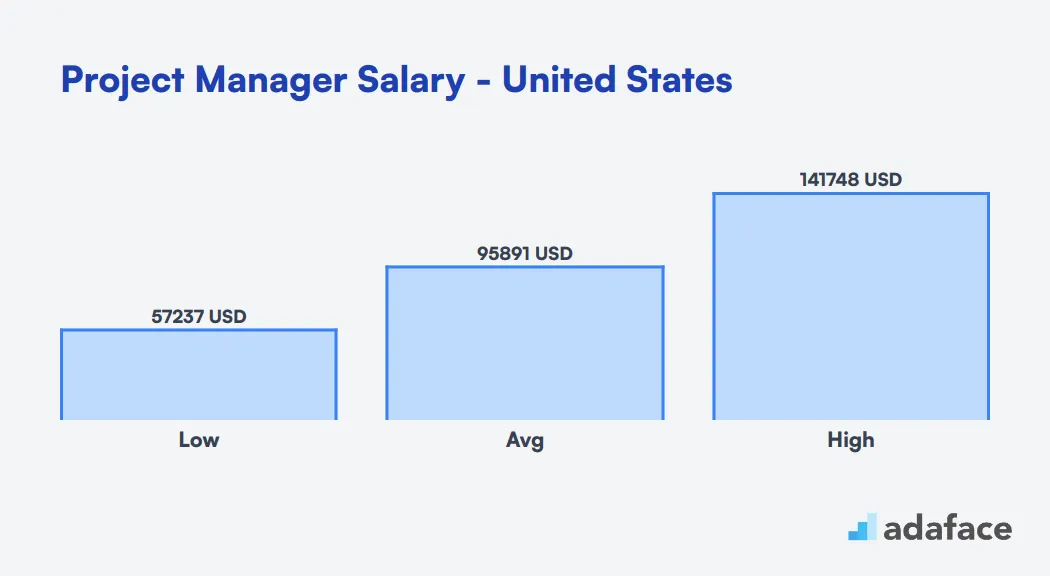
Project Manager Salary in Australia
In Australia, the average salary for a Project Manager is around AUD 134,926 per year. Salaries can vary widely, with the lowest reported at approximately AUD 93,232 and the highest reaching about AUD 182,341.
Salaries differ by location; for example, in Sydney, the average is about AUD 140,546, while in Adelaide it is AUD 119,403. This variation is important to consider when hiring, as it can impact your recruitment strategy.
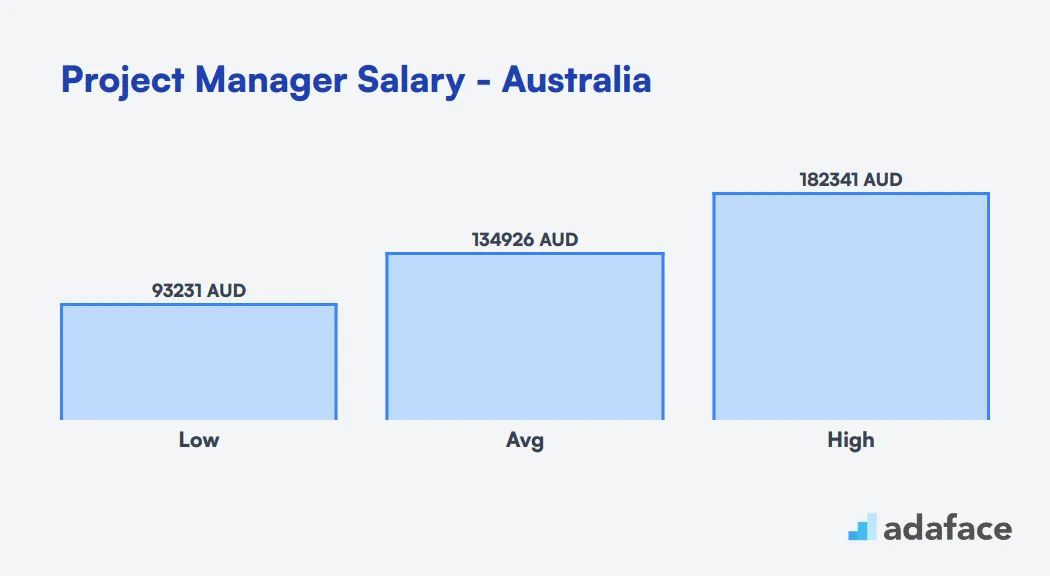
Project Manager Salary in the Philippines
Project Manager salaries in the Philippines vary by location and experience. In Manila, the average salary ranges from ₱334,955 to ₱1,194,865 per year, with a median of ₱632,634. Makati and Cebu City follow closely, with median salaries of ₱537,983 and ₱526,906 respectively.
Across the country, Project Managers can expect to earn between ₱163,240 and ₱912,025 annually. The national median salary stands at ₱385,848, reflecting the competitive nature of the role in the Philippine job market.
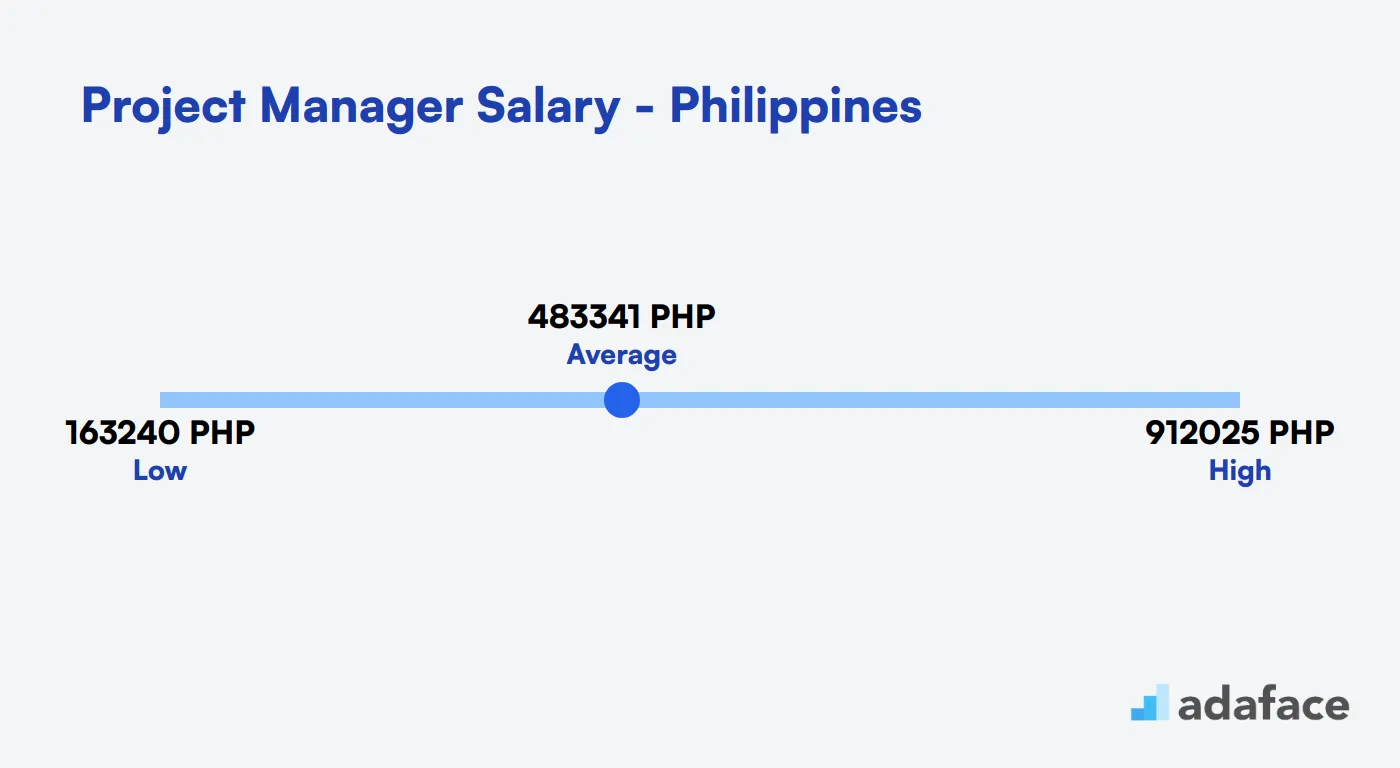
Project Manager Salary in Canada
The average salary for a Project Manager in Canada is approximately $94,678 CAD. Depending on the region, salaries can range from around $62,287 CAD at the lower end to as high as $132,060 CAD at the top end. Major cities like Oakville, Toronto, and Vancouver typically offer higher average salaries, while areas like Winnipeg report lower figures.
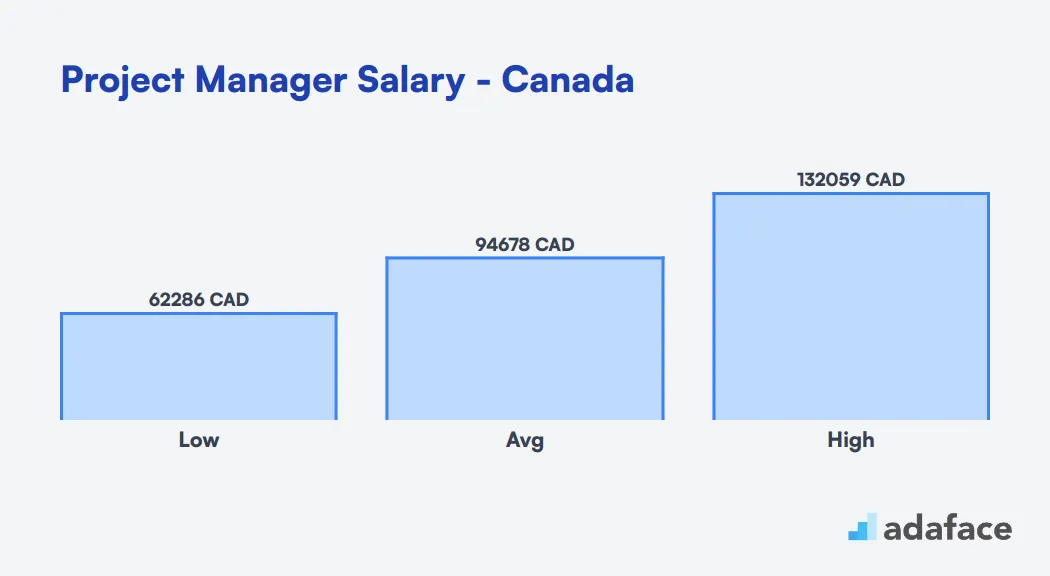
What's the difference between a Project Manager and a Program Manager?
Many people confuse the roles of a Project Manager and a Program Manager because both positions deal with managing initiatives within an organization. However, they focus on different scopes and objectives, making their responsibilities quite distinct.
A Project Manager typically oversees a single project, managing day-to-day operations and ensuring that specific tasks are completed on time and within budget. The role usually requires 3-5 years of experience and emphasizes skills like task management and risk mitigation.
In contrast, a Program Manager oversees multiple related projects, aligning them with the broader strategic goals of the organization. This role demands 7-10 years of experience and focuses on long-term planning and resource allocation, dealing with larger teams and often ongoing initiatives.
| Project Manager | Program Manager | |
|---|---|---|
| Scope | Single project | Multiple related projects |
| Focus | Tactical, day-to-day operations | Strategic, long-term goals |
| Team Size | Smaller, project-specific team | Larger, cross-functional teams |
| Timeline | Defined project timeline | Ongoing, often multi-year |
| Reporting | To senior management or program manager | To executive leadership |
| Budget Responsibility | Project-specific budget | Multiple project budgets |
| Key Skills | Task management, risk mitigation | Strategic planning, resource allocation |
| Typical Experience | 3-5 years | 7-10 years |
What are the ranks of Project Managers?
Often, people confuse the various ranks of project managers due to overlapping responsibilities and varying titles. Understanding the hierarchy helps in identifying the right fit for your project needs.
• Project Manager: A project manager oversees specific projects from initiation to completion. They ensure that the project stays within scope, budget, and schedule while managing the project team effectively.
• Senior Project Manager: Senior project managers handle larger or multiple projects and may lead teams of other project managers. They are responsible for strategic planning and may work on high-stakes projects that require more extensive experience.
• Program Manager: Program managers oversee a group of related projects, ensuring they align with the overall organizational goals. They focus on the bigger picture, often managing interdependencies and resource allocations across projects.
• Portfolio Manager: A portfolio manager is responsible for a collection of projects and programs, focusing on optimizing the overall value and aligning them with the organization's strategic objectives. They evaluate projects for selection and prioritization based on long-term goals.
• Director of Project Management: A director leads the project management office (PMO) and sets the overall strategic direction for project management practices in the organization. They mentor project managers and ensure that project methodologies are effectively implemented.
For more details about job descriptions and responsibilities, visit the Project Manager Job Description page.
Hire the Best Project Managers for Your Team
We've covered the key aspects of hiring project managers, from understanding their role to crafting effective job descriptions and conducting interviews. The hiring process for project managers requires a careful balance of assessing technical skills, leadership qualities, and cultural fit.
If there's one takeaway from this guide, it's the importance of using well-crafted job descriptions and skills tests to make your hiring process more accurate. By implementing these strategies, you'll be better equipped to find project managers who can drive your projects to success.
Project Management Test
FAQs
Hiring a project manager is crucial for keeping projects on track, within budget, and delivered on time. They bring leadership, organization, and problem-solving skills that ensure successful project execution.
A project manager should have strong leadership, communication, and organizational skills. They should also be adept in problem-solving, time management, and possess relevant technical expertise.
You can assess a project manager's skills by asking targeted interview questions that evaluate their problem-solving abilities, leadership style, and past experiences. Consider using skills tests to measure their competencies objectively.
Best platforms for hiring project managers include professional networking sites like LinkedIn, specialized job boards, and recruitment agencies that focus on project management roles.
An effective job description for a project manager should clearly outline the roles and responsibilities, required qualifications, and the skills you are looking for. Highlighting your company culture and potential career growth opportunities can also attract the right candidates.
A project manager is responsible for overseeing individual projects, while a program manager manages multiple related projects, aligning them with strategic business objectives.
To ensure a good cultural fit, evaluate candidates based on their alignment with your company's values and work environment. Consider involving team members in the interview process to gauge their compatibility with the existing team.

40 min skill tests.
No trick questions.
Accurate shortlisting.
We make it easy for you to find the best candidates in your pipeline with a 40 min skills test.
Try for freeRelated posts
Free resources



